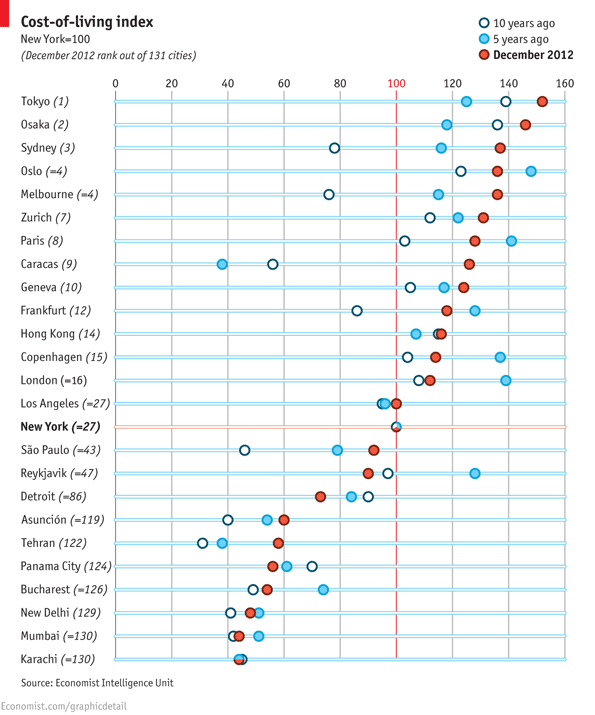yes, I studied abroad there during undergrad and it was ridiculous. for example, a candy bar that would cost $ .75 here costs $3 there.
Maybe for NA-specific brands. Mars, Snickers, etc. are all roughly the same, give or take a few cents

For more important things there are ups and downs, like anywhere! (Also, when you take into account the much higher minimum wage, all the prices aren't actually that bad...)
Rent - can be manageable in the smaller capitals like Adelaide. I've heard Sydney is a very different story though. Live with housemates, its affordable. I'm not paying significantly more than I would if at home.
Coffee at chain restaurants isn't that different. At Hudsons (a chain) you can expect to pay around $4 for a double shot latte. I worked in coffee back home, that's standard. Eating out is *moderately* more but when you consider that you don't add tip and tax on top of your meal, it works out to almost the same. I have been to Melb and Syd as well as didn't feel especially strained for eating out.
Utilities - Can be pricey. Electricity costs a lot. Cell phones are cheap. Internet is expensive for what you get (ADSL2+).
Electronics - on the whole they are more expensive. But if you get "home brand" TVs, etc. instead of your Samsungs, Sharps and LGs then its a bit better.
Cars - expensive but you can get cheapish second hand ones (Gas prices fluctuate a lot though so sometimes its worth keeping an eye on the pumps around fill-up time. You don't want to fill at $1.55 on Monday only to drive by on Wednesday to see it at $1.33...which happened to me last week!!!

)
Alcohol - ...bring as much duty free as you can, then pay people to bring more for you.
All that being said, the AUD has dropped substantially in a relatively short period of time, so my CAD is going to go a lot further when I transfer across my $90103948382034343 for international fees

Edit: I'm in Adelaide so not as pricey as Sydney. But even my friends here from Melbourne and Brisbane don't consider Adelaide a significant drop in price, so its probably roughly the same. For the record none of them live Downtown, they all live outside the city around a 15-20min drive from downtown.


